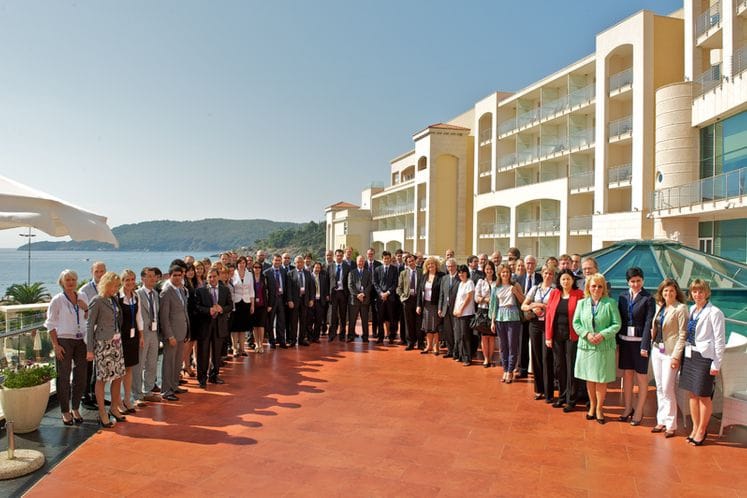- Government of Montenegro
Ministry of Finance Sixth annual meeting of senior budget officials fr...
Please note: The page below represents the archived content relating to the previous Government of Montenegro. Some of the information might be inaccurate or outdated.
Archive
Sixth annual meeting of senior budget officials from the countries of Central, Eastern and Southeastern Europe (CESE)

Published on: Sep 23, 2010 • 10:13 PM Author: Ivona Mihajlović - administrator
The sixth annual meeting of senior budget officials from the countries of Central, Eastern and Southeastern Europe (CESE) hosted this year by Montenegro, was opened by the introductory speeches of Chairman of the meeting, Mr. Richard Emery, Deputy Minister of Finance, Mr. Nemanja Pavlicic, Director of the Slovenian Centre for Excellence in Finance (CEF), Ms. Mira Dobovišek, as well as acting director in the budget and public spending in the Organization for Economic Cooperation and Development (OECD), Mr. Dirk Kraan. Mr. Pavlicic said that all countries as well as Montenegro are at the half of its road to applying fiscal adjustments, being important for the future establishment of the fiscal policies that will ensure a long - term stability of public finances. He said that the most important lesson learned from the crisis is that the current spending must be balanced with the structural revenues. "Of course, the amount of the structural revenue is the most difficult question for us who are decision makers, whereas it is important to identify cyclical revenues and to use them as we can, primarily through investments in productive capacity, capital budget and debt repayment. Mr. Pavlicic announced that Montenegro needs to continue with its restrictive policy, or measures aimed at reducing public spending, because it is a good course that was recently confirmed by the European capital market, and has been recognized by the international financial institutions. "I believe this is the feature of all post – crisis budgets, to find the best measure of the further development and to reduce spending." He said that he expects that Montenegrin experience will contribute to the improvement of the budgetary decisions of attending countries, in order to provide stable long-term economic framework and macroeconomic policy. One of the key messages was sent by the University professor from Ljubljana, Mr. Mojmir Mrak, who has presented the topic Redefining growth models for Eastern European countries after the crisis: Can Eastern Europe grow again at a faster rate than Western Europe. Professor Mrak said that factors generating the potential growth of the region, which will be lower in the upcoming mid-term period compared to the pre-crisis period, have two sources - first, it is expected that the changed international environment will provide much less support for generating high economic growth in the region, secondly - slower growth in the Western Europe will affect the demand for exports from Eastern Europe. "There is no doubt that drastically reduced potential growth of new member states in the upcoming mid-term period will significant impact the effects of the real economic convergence with the EU average. In the long run, it is reasonable to expect that the development process will normalize, representing "convergence process" of less developed countries of Eastern Europe, which develop faster against the partners in Western Europe", said the Professor Mrak.
Related articles:
Medium-term Debt Management Strategy 2025-2027 Feb 19, 2025
Is this page useful?
